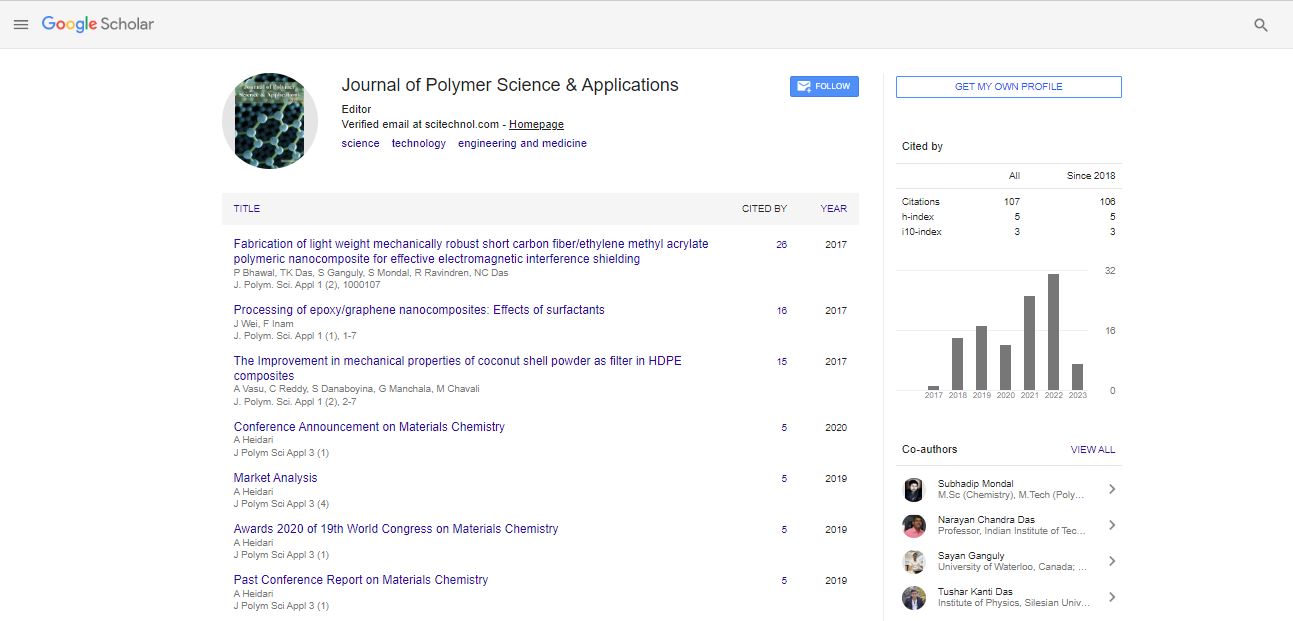Michael faraday and modern innovative technologies
E N Suleimenov, R H Sharipov, U A Balgtmbaeva and B T Utelbaev
Kazakhstan-British Technical University, Kazakhstan
: J Polym Sci Appl
Abstract
The work of M. Faraday plays a decisive role in the development of ideas about the nature of the chemical bond and the practical application of electrochemical processes and others. In the XX century, he acquired a huge experimental material, which confirms the correctness of the views of M. Faraday on the effect of electric current on chemical reactions. The key points are the Following main thesis of the work of M. Faraday: 1. Identity of energy manifestations in the interaction of material objects 2. Discrete nature of the electric current The position of the discrete nature of the electric current makes it possible to use a combination of electrical conditions to organize unusual chemical reactions. The position on the identity of the energy manifestations of the interaction of material objects provides the basis for revising scientific provisions on the mechanism of heat transfer between material objects. We have shown that the key problem for the further improvement of chemical and metallurgical technologies has become the need to establish realistic ideas about the structure of oxide melts in particular and liquids in general. The solution to this problem is possible with a targeted analysis of the influence of non-stationary, oscillatory, combined and other energy effects on liquid systems, including melts, since such effects will make it possible to more clearly show structural transformations and the effect of structural transformations on the physicochemical properties of a liquid. Technologies in hydrometallurgy are proposed. Methods have been developed for extracting metals into solution using complex electrodes. In particular, based on the works of M. Faraday, innovative technologies for protecting metals from corrosion are being developed.
Biography
E N Suleimenov graduated from the Kazakh Mining and Metallurgy Institute, metallurgy faculty in 1960. Doctor of Technical Sciences (2005). After graduation he was assigned to work in the Institute of Metallurgy and Ore Benefication of the Academy of Sciences of Kazakh SSR. In 1969-1971 he worked as a senior teacher at the department of metallurgical processes and furnaces theory of the Kazakh Polytechnical Institute named after V.I. Lenin. In 1995-1996 (combined duties) worked as an assistant professor at the department of non-organic substances technology of the Kazakh National Technical University named after K.I. Satpaev. Developed and held courses in energy technology processes, plasma chemistry etc. He held a practical course in the metallurgical processes theory and also held short courses of lectures on melted slags theory and new processes in heavy non-ferrous metals metallurgy. 2009-present – deputy head of the “Advanced materials and technologies” laboratory of the Kazakh-British Technical University.
 Spanish
Spanish  Chinese
Chinese  Russian
Russian  German
German  French
French  Japanese
Japanese  Portuguese
Portuguese  Hindi
Hindi 